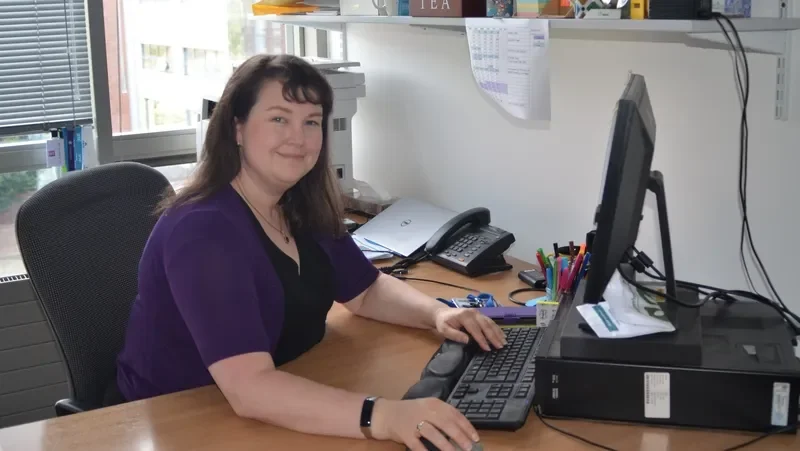

Interview with Associate Professor Suzanne Little
What is your background briefly?
I’m from Australia and I have a BSc in Information Technology (Software Engineering) and a PhD in Computer Science from the University of Queensland. I originally went to university to study science but really enjoyed the challenge of computer programming. After graduating I moved overseas and worked as a postdoctoral researcher in Italy, Germany, the UK and Ireland. I arrived at DCU eight years ago as a Research Fellow. Since then I've become an Assistant Professor in the School of Computing and, apart from teaching data analytics, I'm a Principal Investigator in the Insight SFI Research Centre for Data Analytics, the chair of DCU's new Data Science degree and a co-director of the SFI Centre for Research Training in Artificial Intelligence.
Tell us about your work on the Croke Park smart stadium.
A collaboration between DCU, Intel, Microsoft and Croke Park may seem unusual but it's been a very successful project that pushes the development of technology in internet of things and data analytics. As a researcher I look for interesting challenges that can provide me with usable data where I can trial and evaluate my solutions. The smart stadium collaboration provides really exciting challenges around crowd movement, fan engagement, pitch management and environmental monitoring and a venue that is small enough to allow us to trial ideas but large and realistic enough to show the effectiveness. It's also a great opportunity to talk about technology and what we can use it for - people love going to Croke Park! For example, we used microphones that measure decibel levels to see how loud the crowd response was during key moments of a match and showed this on the big screen at halftime.
What other projects are you working on?
My research is in how we get information from multimedia, mostly images and video, and the great thing about this is that it is relevant for lots of different applications. I've had recent EU projects (CloudLSVA & VI-DAS) that use computer vision on video from instrumented vehicles to help with advanced driver assistance systems and other projects looking at how we can use CCTV footage to improve our understanding of how crowds and traffic move in the SFI ENABLE project on Smart Communities. I'm also involved in a H2020 project, GIOTTO, that's using data modelling to improve medical devices treating bone fractures and osteoporosis. At the Insight SFI Centre for Data Analytics I'm working on challenges in integrating multi-modal data - images and audio and text and sensors. My PhD students are also working on a range of exciting ideas from improving the efficiency of convolutional neural networks through to modelling scalable industrial desalination techniques!
How did you get involved with AI?
Artificial Intelligence covers a broad range of techniques and applications. I've always been interested in how computers help to find and organise information, especially from rich and interesting sources like photographs and videos. It's really challenging to get a computer to "understand" the meaning of visual media consistently and accurately. One way of doing this is to use methods that come from AI - neural networks, ontologies, machine learning, computer vision, etc.
Why is it important to raise awareness about AI?
While the label “Artificial Intelligence” has become popular recently, the underlying technologies are used in many everyday tools and activities. When you use a search engine, your smart phone, social media, drive your car or buy something, there’s all sorts of machine learning, modelling and decision making happening behind that activity. Understanding what’s possible and what’s still developing is important to help everyone (consumers and developers) use technology responsibly and to be aware of potential issues. Research shows how exposing kids to technology fosters their interest in STEM. Last year MIT developed a bingo game to help adults start the AI conversation with children (read here).
#STEMinDCU
